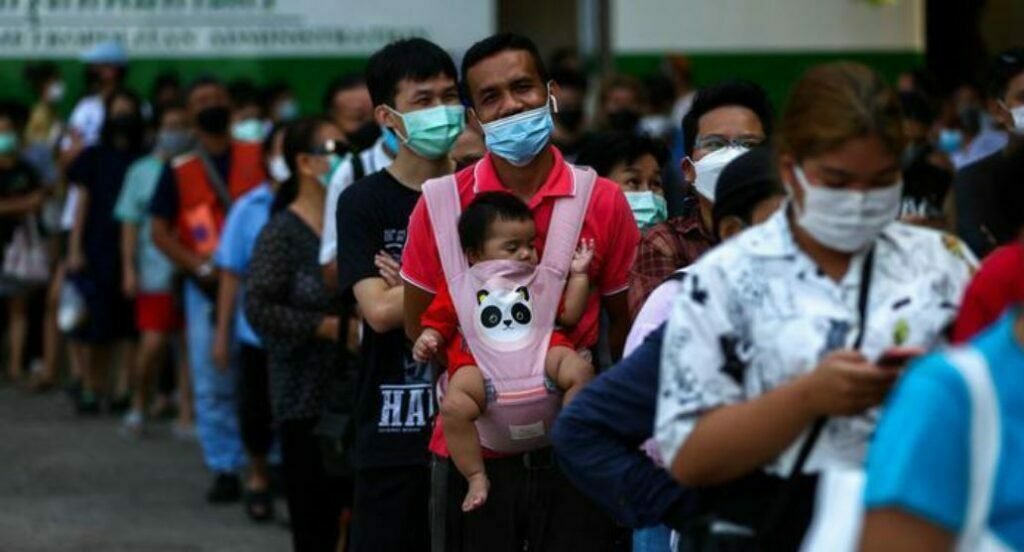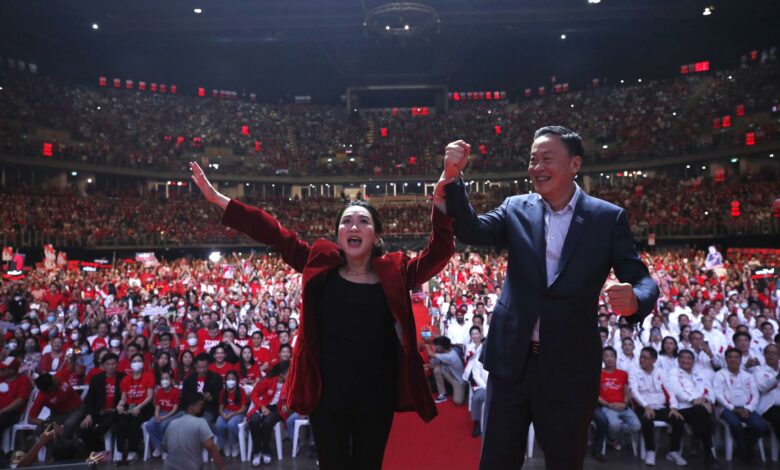It’s a tall order, but no matter how rough the road ahead may still be, every election offers new optimism. The main paradox is plainly evident. Without heroes and villains, and without everyone wishing to be a hero at the expense of others, there cannot be an election. Although it is the way things are, it is not how they should be.

A climate that should change after Sunday is highlighted by campaign posters and other pre-election developments. Otherwise, no-holds-barred political advertising by candidates and their supporters will completely transform democracy into a brutal game in which every player does whatever it takes and pays whatever the cost to win.
Unfortunately, the current political culture does little to encourage less competitive elections. Therefore, it is on to both the winners and losers to ensure that Sunday’s aftermath was truly democratic in order to prevent the same cloak and dagger tactics from being used in the future elections.
Thailand has held 26 general elections since 1932, and the 27th will take place on Sunday. Every election has its campaign slogans promising reforms and changes. However, genuine reforms and adjustments have been difficult to achieve because of the country’s divisions, which let suspicion and prejudice take precedence over ideals, norms, and potential co-operation.
The challenge for Sunday is paradoxical in a way. In the midst of growing worry, even in America, that polarization, with all of its downsides, is making people lose trust in elections, a basis of democracy, Thailand is going to the polls to demonstrate their worth. It’s a duty that goes well beyond choosing the next four years’ president of the country. Thais are tasked with defending a highly prized international system by demonstrating that it is capable of resolving the issues of the average person. They do this by living in a “small” country relative to the rest of the world.
Few could express what Thailand needs more effectively than Dr. Prawase Wasi, one of the country’s most renowned intellectuals, thinkers, and humanists. He effectively appealed for the merging of new and old ideas and values by praising the nation’s young generation and encouraging them to work toward true equality, which he said even the United States lacks.
He asked the elder generations to be open-minded about new ideas. He emphasized to the younger generation that fresh ideas must also demonstrate their genuine significance in the form of a better society.
Prawase obviously does not want elections to be so vicious where each does nothing but demonize the other, even though he did not say it aloud. This type of political climate misinterprets helpful suggestions from the opposing side, dissuades capable human resources from assisting if the perceived enemies are in power, and encourages turning a blind eye when someone on the same side commits a wrong, making real justice impossible and the fight against corruption a losing battle.
The new generation is capable of leading, according to Prawase, but it must be done in synchronization of the front and back legs. He said it would be the greatest accomplishment the world has ever seen if elections and their aftermath could make Thais move in unison.
“The new generation is the future,” he declared. “The future will be bright if they are completely awake, idealistic, and extremely competent. Old thinking is not necessarily harmful just because new thinking is required. Even in business, if something isn’t changed, it will eventually result in losses. Everyone requires rethinking. I have seen innovative thinking rejected. Everyone must find a way to ensure that innovative thought not only endures, but also thrives.
Prawase’s suggestion should be taken into account by all parties because Sunday’s election appears to be a contest between old waves (who were once young waves) and new waves (who will eventually turn into old waves themselves). Both the elder and the newer generations are present. Thailand’s greatest test will be whether they can coexist peacefully and productively.
On Sunday, despite the fact that there is still a long way to go, another step will be taken.




